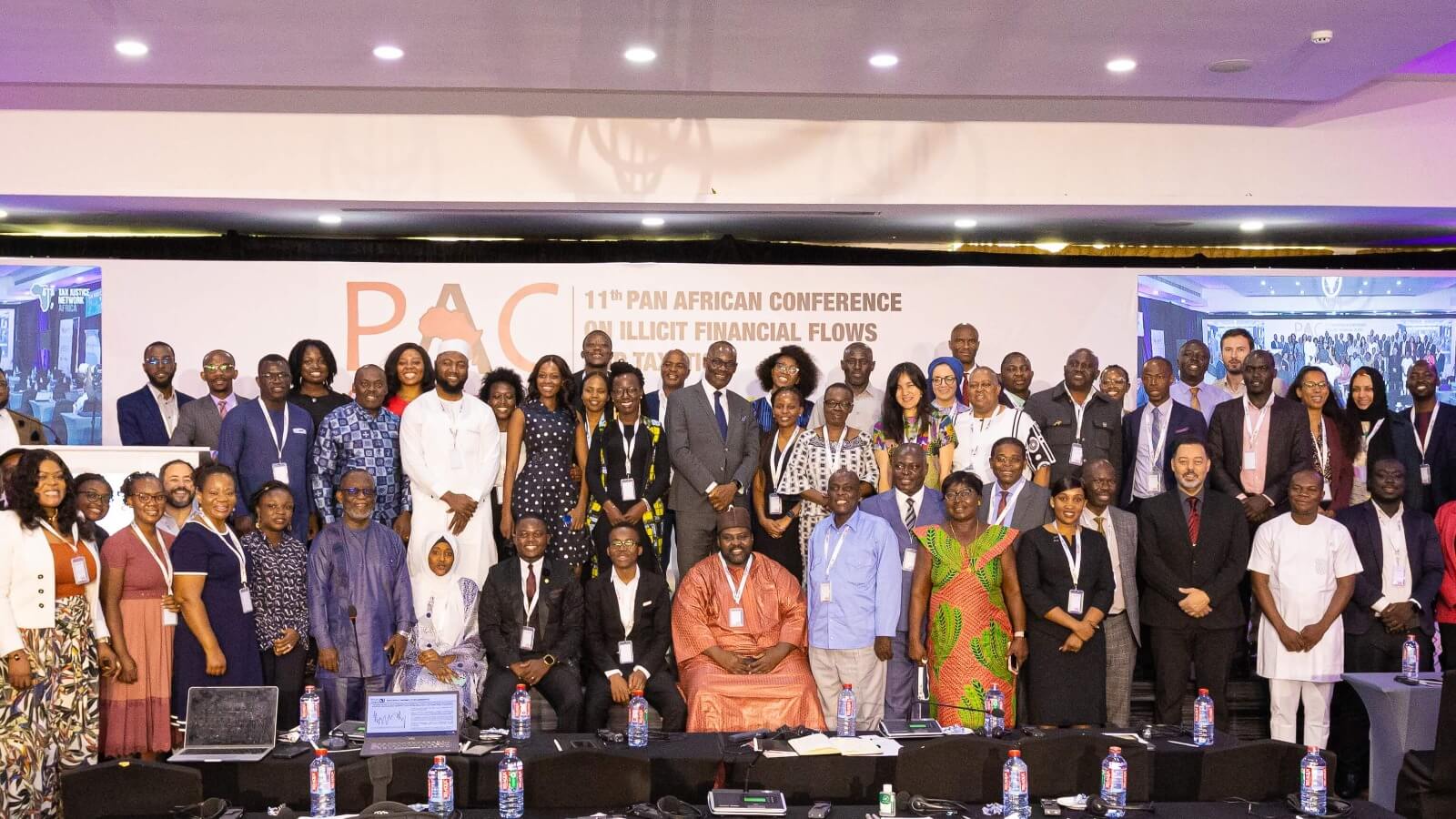Date

Over 400 delegates who gathered in Accra for the 11th Pan African Conference on Illicit Financial Flows and Taxation in the tax space from Africa have stepped up calls for reforms in the global financial architecture to combat illicit financial flows from Africa at the Pan African Conference on Illicit Financial Flows and Taxation conference (PAC 2023).
The call emphasised the need for collective action and collaboration between tax justice stakeholders, civil society organisations (CSOs) and policymakers to have a common African position on the reform of the Global Financial Architecture.
PAC 2023 brought together tax justice stakeholders, civil society organisations (CSOs) and policymakers under the theme “Making Global Tax Governance Work for Africa” to enable them to contribute to the development of a common African position on key international conversations that affect African countries' efforts to raise domestic resources.
In his opening address, the Minister of Finance of the Republic of Ghana Hon. Ken Ofori-Atta welcomed the delegates to Ghana and noted that the achievement of the continental flagship projects under Agenda 2063 requires at least 75 per cent of resources to be mobilised within the continent as it is the cornerstone upon which our collective progress rests.
“We must unlock the vast economic potential within our borders, fostering an environment conducive to investment, innovation, and entrepreneurship. This will require targeted policies that promote fiscal transparency, efficiency, and accountability. This can be made possible if the continent effectively fights against illicit financial flows.” He added.
The Commissioner for Trade and Industry of the African Union Commission H.E. Albert Muchanga emphasised the need for Africa to have solid proposals to place the continent on a pedestal when it comes to issues of global taxation.
“We need to produce concrete proposals to present to the G20 to ensure that global taxation works for Africa, we can do this through the efforts that are coming up through the United Nations on international tax cooperation.” He spoke.
Dr. Godfred Seidu Jasaw, Vice Chair, African Parliamentary Network on Illicit Financial Flows and Taxation (APNIFFT) Ghana National Caucus echoed that Africa is said to possess vast land, minerals and human resources that can be transformed into livelihood options for citizens, but this is not being actioned by governments to better the lives of Africans.
“It is often said that Africa should look within to generate its own resources, I agree but to an extent because arrangements and resources to transform these into livelihood options for its citizens are still yet to be put in place.” He noted.
The Executive Secretary at the Africa Tax Administration Forum (ATAF) Mr. Logan Wort noted that the greatest impact of the AU's membership in the G20 will come from affording the continent a voice in a forum where most of the key issues impacting the global economy are discussed.
“As we continue to debate the best feasible way to mobilise domestic resources, we cannot shy away from an important conversation which is at the heart of our gathering. Global Financial Architecture is transforming, albeit at a slow pace. Several moves are in progress, such as the United Nations Secretary General's report on promoting effective and inclusive international tax cooperation and the African Union's seat in the Group of 20,” He noted. 
Delivering a keynote address themed “An African Transformative Agenda for the Global Financial Architecture,” Brian Kagoro, Pan-Africanist and Lawyer revealed that for every dollar Africa receives, it loses 3 to illicit financial flows. Mr Kagoro further called for Africa to reduce the looting of African resources to foster development.
“If we can reduce the looting of Africa and our resources by multinational corporations, we can get more development done to increase the application of resources and taxes to the development of various components of our economies.” He echoed.
Dr. Fadhel Kaboub from the Global Institute for Sustainable Prosperity noted that Africa needs to disengage from identifying itself as a poor continent, a source of cheap raw materials, and a dumping site for obsolete technology, as this locks it at the bottom of the global value chain.
“Any vision of transformation for Africa must unlock the roles we played in the past and transform our economy structurally so that we are repositioned as sovereigns and equals in the global economy.” He remarked.
Ms Chenai Mukumba, Executive Director of Tax Justice Network Africa (TJNA) echoed that the global tax system is no longer fit for purpose, adding that the global financial architecture, in its current state, is unfair, unjust, and inequitable, and needs to be reformed.
“To achieve our objectives, we need to establish alliances and solidarity with other stakeholders from both within our region as well as other regions, particularly within the global south. We need to establish alliances to help us collectively push back against the economic autocracy that seeks to maintain its hold on our present global economic system. “She noted.
At the end of the 3-day conference, the participants issued a joint communique to reinforce Africa’s global stand on reforming the global financial architecture and combatting illicit financial flows.
PAC is an annual event convened by Tax Justice Network Africa (TJNA) in collaboration with ATAF, the African Union Commission, and other partners. The event facilitates engagements and collaboration among African civil society organisations, pan-African institutions, and government agencies in addressing the problem of illicit financial flows and progressive taxation.
For more information about PAC, please contact Felix Otiato at fotiato@taxjusticeafrica.net